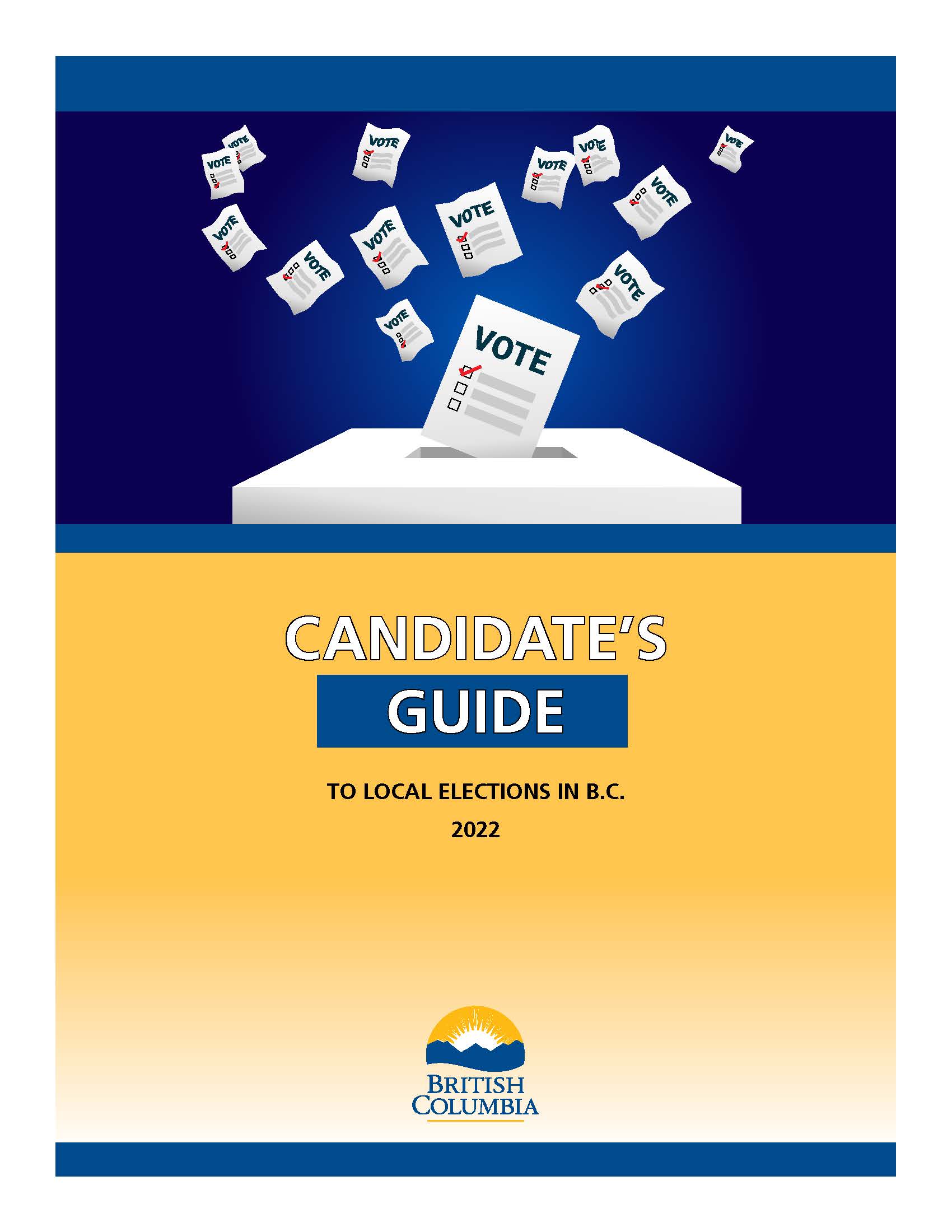Running for local office
Residents of B.C. interested in running for local government office in a general local election or by-election must meet certain eligibility requirements to be nominated. In addition, provincial legislation sets out how candidates may run and finance their election campaigns and advertise their candidacy.
Candidate eligibility
Requirements
To be eligible to run for local government office in a general local election or a by-election, a person must meet certain eligibility requirements. They do not have to live or own property in the local government where they are running for office.
To be eligible to run for office, a person must:
- Be 18 years of age or older on general voting day
- Be a Canadian citizen
- Have been a resident of British Columbia for at least six months immediately before filing nomination documents
- Not be disqualified under the Local Government Act or any other enactment from voting in an election in British Columbia or from being nominated for, being elected to or holding office, or be otherwise disqualified by law
A person is ineligible to run for office in a general local election or by-election if they:
- Have been convicted of and sentenced for an indictable offence and are in custody
- Have been found guilty of an election offence, such as intimidation or vote-buying, and are prohibited from holding office
- Are judges of the Provincial Court, Supreme Court or Court of Appeal
- Are involuntarily confined to a psychiatric facility or other institution
- Have been disqualified for specified reasons such as failing to:
- File a candidate disclosure statement in a previous election
- Make an oath of office
- Attend local government meetings in the manner and frequency required by the Community Charter
- Been disqualified under the Local Government Act or any other enactment from voting in an election in British Columbia or from being nominated for, being elected to or holding the office, or be otherwise disqualified by law
Nominations and financial disclosure
Prospective candidates for local government office must be nominated, consent to the nomination, submit nomination documents, pay a nomination deposit (if applicable) and submit a financial disclosure statement that details their corporate and personal holdings to run for local office.
Election campaigns
An election campaign is a connected series of actions (such as advertising, meetings and speeches) designed to elect a candidate or a group of candidates to an elected office.
Election advertising and campaign financing rules
Candidates, elector organizations and third party sponsors are required to follow election advertising and campaign financing rules before, during and following general local elections. There may be penalties for not following these rules.
Responsible conduct
How elected officials conduct themselves in their relationships with elected colleagues, staff and the public are directly connected to how a community is governed.
- Learn more about responsible conduct of locally elected officials
- Learn more about what it means to be an effective elected official
Local elections legislation
Learn more about being a candidate for locally elected office.
Guidance and resources
Elections BC
Contact information
Contact us if you have legislative questions about general local elections.
250 387-4020
1 800 663-7867


